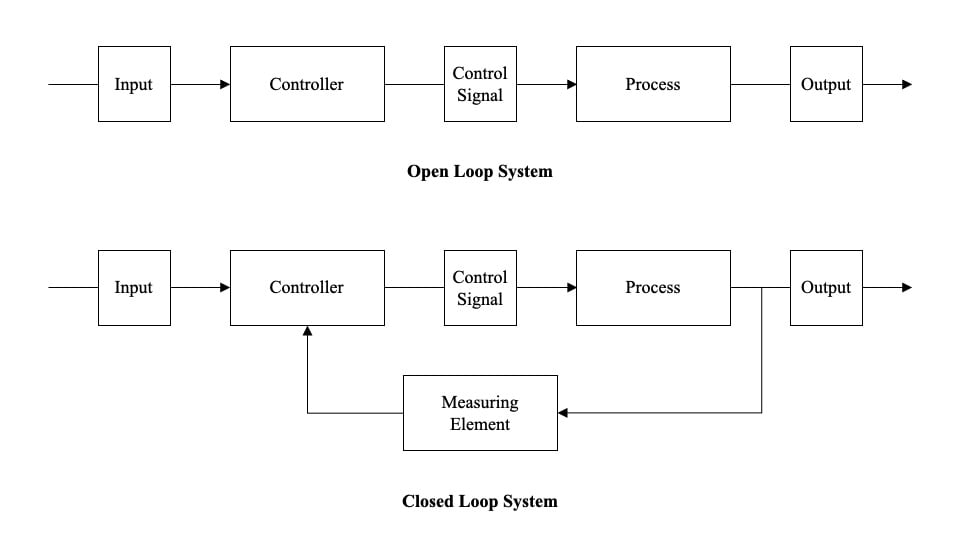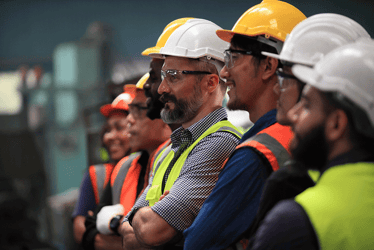The Packaging Industry's Sustainability Challenge: Why ERP Systems Are Essential for Success A straightforward guide to navigating sustainability regulations across folding carton, flexible...
The crucial role of closed-loop process control in corrugated manufacturing
In the dynamic manufacturing landscape, the corrugated industry is a pivotal force, weaving its influence across diverse sectors with its role in providing essential packaging solutions.
As the demand for sustainable and efficient packaging continues to surge, the corrugated manufacturing sector finds itself at the forefront of innovation, adapting to meet the evolving needs of industries ranging from e-commerce to food and beverage.
Within this intricate web of production, closed-loop processes, and cutting-edge quality control technology emerge as unsung heroes, ensuring the quality of corrugated products and addressing the growing emphasis on environmental responsibility. In this blog, we delve into the crucial role played by closed-loop processes and quality control technology in the corrugated manufacturing industry, examining their impact on delivering high-quality products that align with the ever-changing demands of today's markets.
Contents
- What is a closed-loop process control system?
- How does closed-loop differ from open-loop systems?
- The benefits of closed-loop corrugator process control systems
- The closed-loop competitive edge
- Escada success stories
- Conclusion
What is a closed-loop process control system?
A closed-loop process control system in manufacturing refers to a sophisticated and efficient approach that involves constant monitoring, analysis, and adjustment of various parameters within the production process.
Unlike traditional open-loop systems, which lack feedback mechanisms, closed-loop systems incorporate real-time data and feedback loops to optimize and control the manufacturing process. This method allows for continuous adjustments based on the information collected from sensors and other monitoring devices, ensuring that the system adapts to changes and maintains desired output conditions.
The closed-loop process system enhances precision, reliability, and overall quality in manufacturing, as it enables quick response to deviations and minimizes the impact of external factors. By integrating advanced technologies and automation, closed-loop systems contribute to increased productivity, reduced waste, and improved overall efficiency in modern manufacturing environments.
How does closed-loop differ from open-loop systems?
Closed-loop systems differ from open-loop systems primarily in their use of feedback mechanisms. In an open-loop system, the process operates without continuous monitoring or adjustments based on feedback. The system's output is predetermined and does not rely on real-time information about the actual results. Open-loop systems are simpler but cannot adapt to changes or correct errors during the operation.

Simplified diagram of Open Loop vs Closed Loop systems
The benefits of closed-loop corrugator process control systems
Closed-loop corrugator process controls, like ePS Escada Profile, offer manufacturers significant advantages by providing a dynamic and adaptive system for corrugated board production. These advanced controls utilize real-time data from sensors and monitoring devices to continuously assess and adjust key parameters throughout the manufacturing process. This ensures precise and consistent corrugated board quality, minimizing variations and defects. By automatically fine-tuning factors such as wrap arms, glue gaps, double backer pressure (shoe system), steam, bridge tension, temperature, and speed, closed-loop controls enhance overall efficiency, reduce waste, and optimize resource utilization.

Sensors on the corrugator continuously monitor and provide feedback automatically via the Escada Profile closed-loop process control system to control the parameters and build recipes of best practices to produce high-quality board.
Manufacturers benefit from increased production reliability, as the system can promptly detect and respond to deviations, including warp and delamination, mitigating the risk of defective products. Additionally, closed-loop controls improve energy efficiency and cost-effectiveness, facilitating a more streamlined and optimized corrugator operation. Adopting closed-loop corrugator process controls elevates the quality, productivity, and sustainability of corrugated board manufacturing for enhanced competitiveness in the market.
Key benefits:
- Reduction in corrugator waste (typically 0.5%)
- Average run speed increase (typically 5-25%)
- Increased board quality
- Repeatable, consistent product regardless of operator or shift
- Reduction in customer returns
- Increase in conversion throughput
- Reduction in the reliance on machine operators to be highly skilled
- Reduction in energy and raw materials.
- The closed-loop competitive edge
Implementing closed-loop corrugator process controls ensures adherence to the stringent requirements of key and challenging customers and enhances product performance that significantly impacts the bottom line. The consistency achieved in the manufacturing process, thanks to real-time data monitoring and adjustments, enables manufacturers to market their products based on superior box performance.
This heightened reliability reduces the reliance on multiple paper grades, as the consistently high-quality output allows for selling based on performance attributes rather than compensating for variations. As a result, manufacturers benefit from cost savings, reduced waste, and improved resource efficiency while simultaneously meeting the exacting standards of key clientele, reinforcing their competitive edge in the market.
Escada success stories
Discover how organizations around the world use Escada to enable revenue growth, empower diversification, and drive operating efficiencies.
“We believe ePS Control is the best choice for having an integrated closed-loop corrugator control system that will bring us many advantages, such as increased quality due to higher run speeds. With these advantages, we expect to save money and further delight our customers with improved and reproducible product quality.”Production Director, Dunapack Packaging Prinzhorn Group, Europe Read Case Study
Conclusion
Modern corrugated manufacturers cannot overlook the indispensable role of closed-loop processes and quality control technology in pursuing manufacturing excellence, especially when adopting performance packaging strategies. These advanced systems, driven by real-time data and feedback mechanisms, ensure precision, consistency, and adaptability throughout the production of corrugated boards.
By dynamically adjusting key parameters such as temperature, pressure, and adhesive application, manufacturers can achieve unparalleled product quality, reducing waste and optimizing resource utilization. The ability to conform to the requirements of key customers and sell based on box performance not only enhances market competitiveness but also streamlines operations by minimizing the need for multiple paper grades.
As the industry evolves, embracing these technologies becomes crucial for sustainable growth in highly competitive markets. Manufacturers are encouraged to explore and adopt closed-loop processes and quality control technology to stay at the forefront of innovation, ensuring operational excellence and environmental sustainability.




